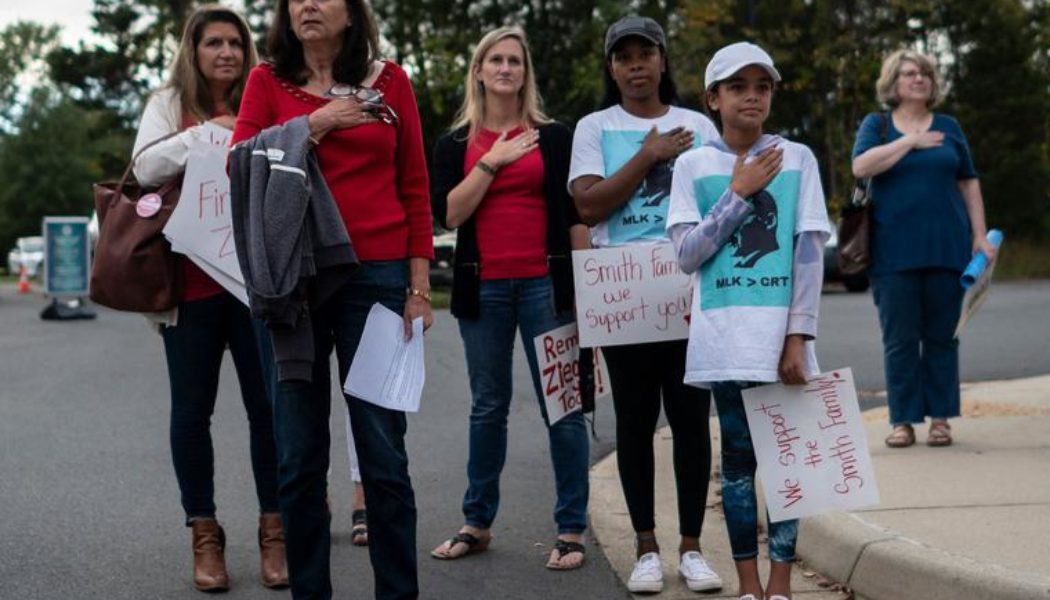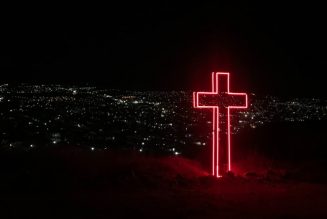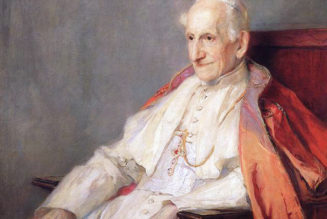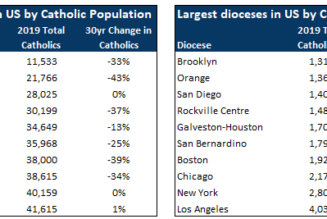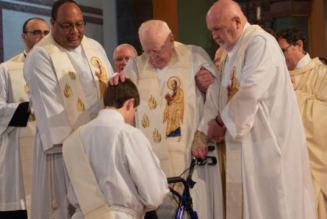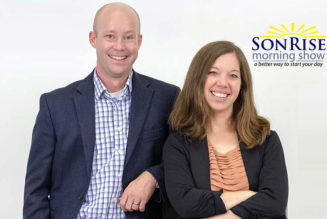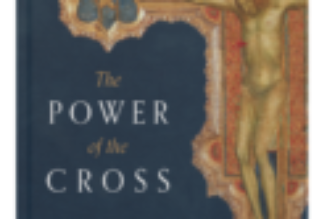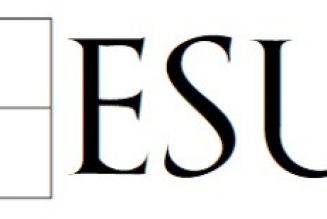
SACRAMENTO, Calif. — Closing an acrimonious, five-year debate on the adoption of an Ethnic Studies Model Curriculum, California Gov. Gavin Newsom signed legislation this month that mandated the teaching of the hotly debated program as a requirement for high-school graduation by 2026.
“Ethnic studies courses enable students to learn their own stories — and those of their classmates,” said Newsom, in a signing statement.
Yet while the initiative garnered strong support from the Democrat-majority state Legislature, the curriculum battle isn’t over and has merely shifted to local school districts that must craft their own course materials addressing the historic resistance movements and achievements of Blacks, Latinos, Native Americans and Asian Americans.
The controversy over the ethnic studies curriculum is emblematic of similar parental-rights concerns mounting across the country over initiatives involving critical race theory, as well as policies that allow access to abortion, contraception and puberty blockers for teens without parental approval.
Experts say the increased engagement with their children’s education during the lengthy pandemic lockdown has encouraged mothers and fathers to speak out and that activism could transform their grievances into a national movement.
Concerned parents have pushed back on the ethnic studies program in California for a host of reasons.
“The main complaints around the curriculum include: incomplete representation of numerous cultural groups; inclusion of components of critical race theory; and inclusion of religious ceremonies and language that children may be required to recite or engage [in],” Kathleen Domingo, the executive director of the California Catholic Conference, told the Register. “The CCC would strongly recommend parents getting involved at the level of their school district if they would prefer to offer an alternative to the California Department of Education curriculum.”
The Thomas More Society, a public interest group, has already filed a lawsuit challenging the model curriculum and its specific inclusion of Aztec and Ashe prayers and chants as a violation of the California Constitution’s free exercise of religion and no government aid clauses.
“Our clients have both a religious and civic objection to the Aztec prayer, and they do not want their children chanting it, being asked or pressured to do so, or risking ostracism if they refuse,” said Paul Jonna, counsel for Thomas More Society.
Wenyuan Wu, executive director of the Californians for Equal Rights Foundation, told the Register that her group, which originally organized to successfully oppose a return to race-based admissions policies at state universities, joined the legal challenge to the curriculum, “after realizing that various crystallizations of racial spoils and practical implementations of CRT [critical race theory] are threatening our public education system and eroding founding values of this country.”
Meanwhile, the turmoil at Salinas Union High School, where a version of ethnic studies has been taught to freshmen for several years, suggests that local school officials will face criticism as parents become involved in the process.
“This is not education; this is indoctrination,” one Salinas resident charged at a July 12 school board meeting, where critics contended that the low number of students achieving competency in basic academic subjects (23% math; 39% reading) should be the first priority.
News coverage of the tumultuous meetings did not confirm whether claims about the course’s ideological content were accurate. But the course description posted on the high-school’s website told its own story: “[S]tudents will understand the intersectional themes of indigeneity, coloniality and hegemony to explore issues of self and communal identities, examine intergenerational trauma and foster collective hope and healing.”
New California Statutes
The law making ethnic studies a requirement for high-school graduation is just one of a number of new California statutes that focus on children’s education and health.
A.B. 1184, for example, directs private health-insurance companies to cover “sensitive” services for children, like abortion or puberty blockers, by tapping their parents’ health plans without the policy holders’ knowledge or consent.
The California Catholic Conference has not taken a position on this bill, according to Domingo, who said it doesn’t change the current reality in California regarding access to abortion.
“In California already, teens are able to find numerous alternative ways of obtaining and paying for abortion, contraception and other reproductive and gender-related services without the benefit of any interaction with a parent or guardian,” she told the Register.
At the same time, Newsom’s first-in-the nation COVID-19 vaccine mandate for all K-12 public- and private-school students is generating headlines, with parents gathering this week outside of public schools across the state to protest the policy. Diocesan school superintendents have been scrambling to address families’ questions and concerns, though the directive is not expected to go into effect until summer, said Domingo.
The flood of new progressive laws and mandates endorsed by Newsom has sparked national interest, primarily because the Golden State is perceived as a trendsetter. But contentious school-board meetings have become a fact of life in many U.S. communities, as administrators, parents and activists clash over pandemic masking requirements, the dismantling of merit-based academic tracking in some areas, and policies that bring race and gender to center stage.
“Parents are no longer in partnership with schools; they are seen as antagonists,” Noelle Mering, the California-based author of Awake Not Woke: A Christian Response to the Cult of Progressive Ideology, told the Register. “Parents are realizing that something is deeply wrong, and even if they don’t understand the meaning behind this movement, they sense that it does not have their children’s best interests at heart.”
Loudoun County, Virginia
At present, the Loudoun County School District in Virginia has become the epicenter of the national battle over CRT curriculum and other controversial initiatives. Local commentators say the mounting parental outrage could upend Gov. Terry McAuliffe’s bid for reelection.
The controversy roiling the affluent school district dates back to a June 22 Loudoun County School Board meeting that addressed various proposals designed to boost racial equity and to allow transgender students to use the pronouns and bathrooms that corresponded with their preferred gender identity.
As the discussion grew more confrontational and tempers flared, one man was arrested for obstruction of justice and disorderly conduct, and the public forum was cut short.
The meeting was flagged by national media as evidence of rising public anxiety over problematic school policies.
“[W]here proponents see attempts to ensure equity in education, critics see the indoctrination of children with critical race theory,” The Washington Post reported in a story that sought to present CRT as “college-level material” that rarely surfaced in “any K-12 school systems.”
Last month, the simmering debate took on greater prominence after McAuliffe, a Democrat, said during a Sept. 28 gubernatorial debate that he didn’t “think parents should be telling schools what they should teach.”
About the same time, the National School Boards Association sent a letter to President Joe Biden alleging that some parents attacking school-board members had engaged in “domestic terrorism and hate crimes” and specifically cited the events at the June Loudoun County meeting.
On Oct. 4, U.S. Attorney General Merrick Garland quickly responded to the group’s letter, issuing a memorandum and a Department of Justice directive that paved the way for federal and local authorities to “determine how federal enforcement tools can be used to prosecute these crimes.”
Garland’s response prompted an astonished and angry reaction from parent activists in Virginia, and elsewhere, with some concluding that outspoken mothers might soon be labeled “domestic terrorists.”
Sexual Assault
Then another bombshell dropped in Loudoun County. Scott Smith, the man who had been arrested for obstruction of justice and disorderly conduct at the June 22 school meeting, alleged that in May of this year his high-school daughter had been raped in the girl’s bathroom by a boy wearing a skirt.
Days later, the father’s statement was followed by another equally shocking disclosure: The teenage boy arrested for the alleged assault in the girl’s bathroom at Stone Bridge High School had subsequently enrolled in Broad Run High School, where he allegedly attacked another student in a classroom this month.
Local authorities have not provided official confirmation that a boy wearing a skirt assaulted the first victim.
Superintendent Scott Ziegler, for his part, has apologized for the district’s failure to protect students. But his staff has also suggested that their hands were tied by the local sheriff’s office, which must first complete its own criminal investigation, and federal guidance governing Title IX violations.
Now, Smith and his wife have filed a lawsuit against the school district. And while Equality Loudoun, a group supporting inclusive policies for transgender students, did not challenge Smith’s allegations, it continued to dismiss concerns about students adopting new gender identities without their parents’ consent.
“Under the policy, students are entitled to be addressed by the pronouns that correspond with their chosen gender identity,” noted a statement issued by Equality Loudoun. “Parents do not need to be informed of the decision.”
Deepening Mistrust
The developing news story has only deepened local mistrust of county school administrators. And some Catholic experts believe it will encourage more parents to embrace their rights and responsibilities as the primary educators of their children, a fundamental teaching addressed in the Catechism of the Catholic Church (2223).
The Catechism states that parents have “the first responsibility for the education of their children. They bear witness to this responsibility first by creating a home where tenderness, forgiveness, respect, fidelity, and disinterested service are the rule.”
The Catechism upholds the right of parents “to choose a school for them that corresponds to their own convictions” (2229).
“The reason why parents are the primary educators of their children is that they are the ones who have the strongest and most direct obligation to look out for the well-being of their children, including the best educational environment for them,” said Melissa Moschella, an associate professor of philosophy at The Catholic University of America, who has studied Church teaching on the responsibilities that parents owe their children and the rise of ideological movements that seek to drive a wedge between parents and their offspring.
Moschella noted that the vast majority of families lack the resources to send their children to private school or home school, and so their sons and daughters go to public school, even if their parents fear that could have harmful effects.
“A basic requirement of justice would be a policy of genuine school choice” that would challenge the public-school monopoly and make it possible for parents to fully exercise their responsibility in this realm, she told the Register. “But given the lack of options, it is even more important for parents to have their own say in the content of the curriculum and for public schools to avoid teaching things that are especially controversial or ideological in nature.”
Parental Rights
Among the most sensitive issues debated at school-board meetings is the adoption of practices that affirm a student’s transition to a new gender identity without their parents’ knowledge or consent. But many parents are equally dismayed to learn that their daughter can easily obtain an abortion through a school-clinic referral.
In both cases, the school sends the message that students should not trust their parents to make loving choices aligned with their child’s best interest, said Moschella. “So instead of going to your parents, if you feel discomfort about bodily changes during puberty, you go to your school counselor.”
In fact, public-school health clinics have been quietly providing birth control, abortion referrals and treatment for sexually transmitted diseases (STDs) for many years, and experts emphasized that the practice of allowing minors to self-consent to these services has paved the way for the seamless integration of gender-affirming treatment.
“The principle that is being established here is a carve out for confidential services, anything medical professionals deem to be ‘sensitive,’” explained Mary Hasson, a fellow in Catholic studies at the Ethics and Public Policy Center in Washington, D.C., who recently addressed parental-rights issues at a Franciscan University of Steubenville conference on the topic.
Hasson noted that public-health specialists initially argued that students’ self-consent for STD treatment would allow them to access prompt medical attention without fears of parental retribution. But the exclusion of parents, she noted, has not prevented STD rates from skyrocketing.
She agreed that the confluence of several recent developments could transform parental rights into a major political issue.
Parents got a glimpse of their child’s classroom materials during the pandemic lockdown, and some aren’t pleased by what they have seen, she noted. Others are worried about the imposition of mask and vaccine mandates, or the rush to embrace CRT and gender ideology in schools.
The question now, she said, is whether “enough parents are going to take notice of what is happening to have a real impact.
“My hope is that parents will become awakened,” she added.
“But parents also need to look at their own situation and realize there are no do-overs for childhood. They need to be prepared to act, pull their kids out, and find an alternative.”
Join Our Telegram Group : Salvation & Prosperity
